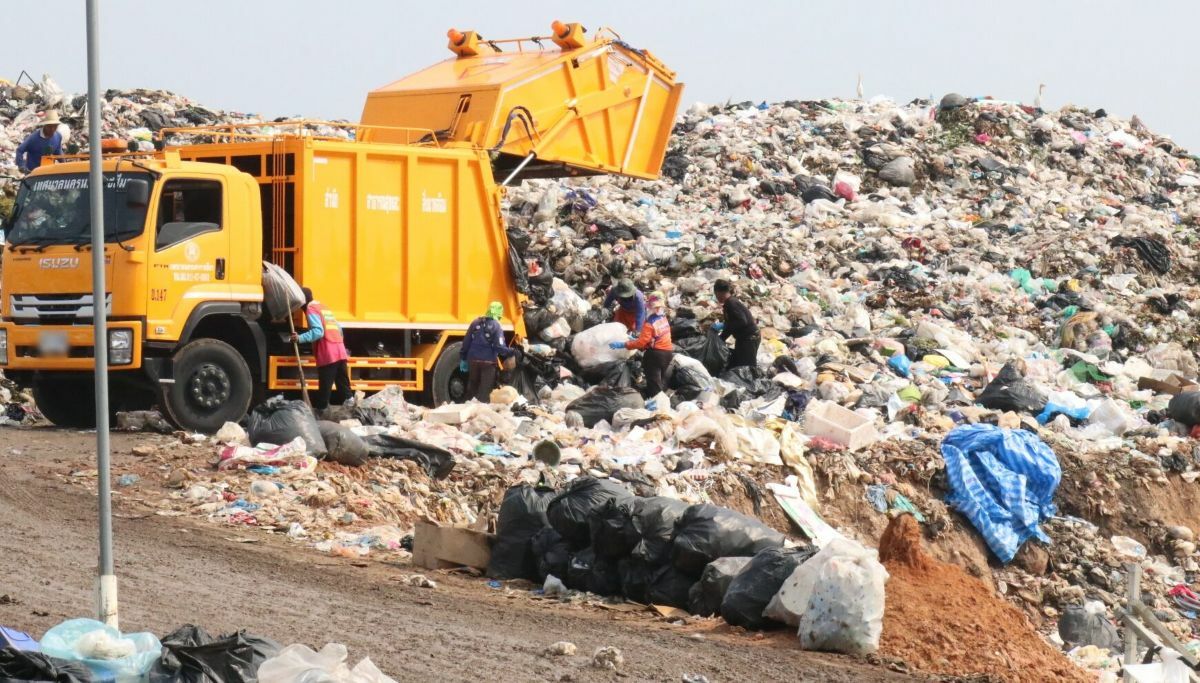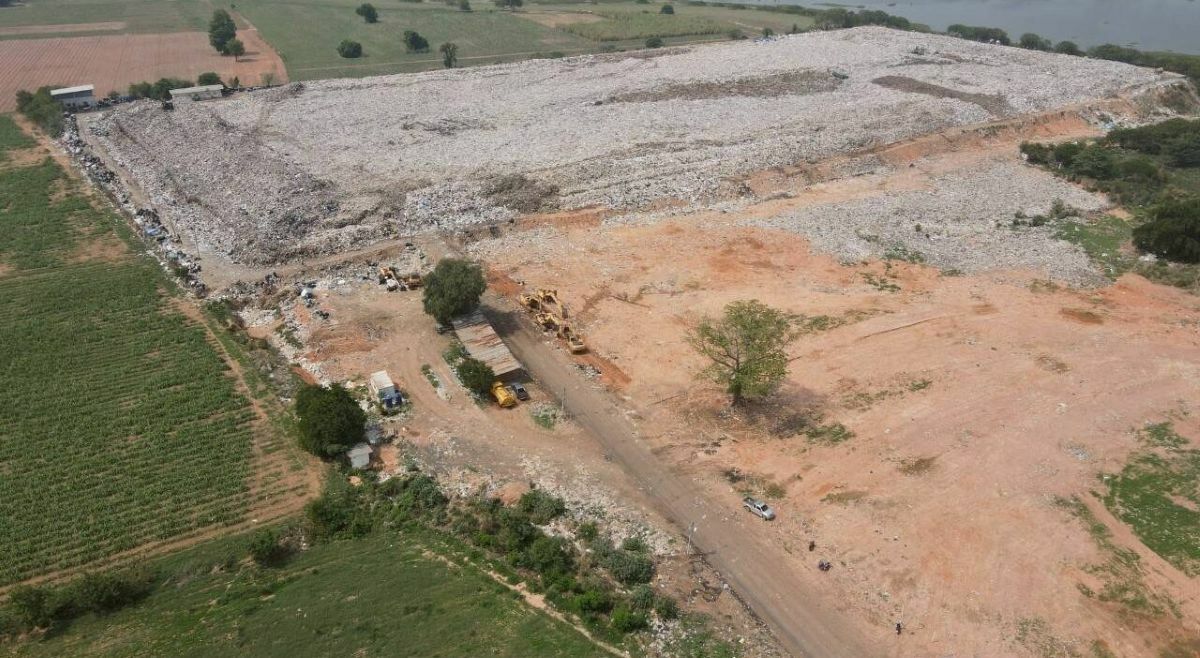Nakhon Ratchasima waste crisis worsens as military halts disposal

In Nakhon Ratchasima, 34 local administrative organisations face a growing waste crisis, as the military orders halt waste disposal due to excessive accumulation.
The rubbish disposal facility in Mueang district has been overwhelmed, with the Second Army Area prohibiting waste dumping in the temporary 50-rai landfill in Zone C from April 11. The backlog has reached over 334,863 tonnes, surpassing the agreed limit of 200,000 tonnes and exceeding the height threshold of 2.5 metres.
Despite prior extensions and relaxed conditions, the waste has continued to accumulate, leading to adverse health effects on nearby communities from odours and wastewater.
Thirty four local administrative organisations, already struggling with 450 tonnes of waste, have appealed to Nakhon Ratchasima Governor Chaiwat Chuenkosum for assistance. They propose initial measures to reduce waste volume and auction the waste for conversion into refuse-derived fuel.

The organisations have also sought coordination with Major General Nat Sri-In, Deputy Commander of the Second Army Area, to allow temporary waste storage in Zone B, up to 350 tonnes daily, until April 21, with full removal by April 30.
Military forces are actively monitoring to prevent illegal dumping in Zone C, while waste from Korat is being temporarily stored in Zone B. Kampanat Butto, Deputy Permanent Secretary of Nakhon Ratchasima Municipality, reported strong cooperation from all organisations in reducing waste at the source through 3R measures (reduce, reuse, recycle), lowering daily waste to an average of 350 tonnes.
Following the normal resumption of municipal operations, plans are underway to invite private companies to purchase the waste.
Community leader Jamlong Mahingsadej from Ban Nong Pling Mai expressed concerns over the impact on locals, who suffer from respiratory illnesses due to the foul odours and wastewater. The waste has also contaminated natural water bodies, leading to the death of aquatic life. The winds exacerbate the spread of odours, affecting over one thousand households nearby, reported KhaoSod.
Latest Thailand News
Follow The Thaiger on Google News:


























